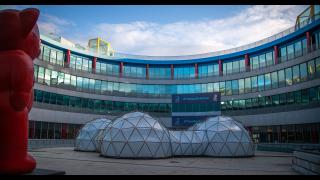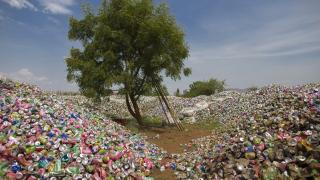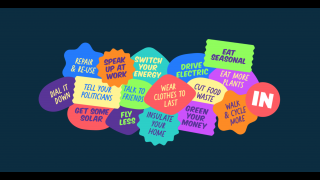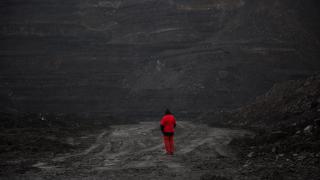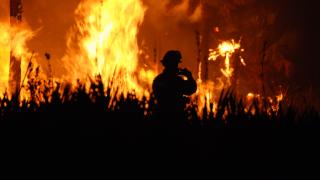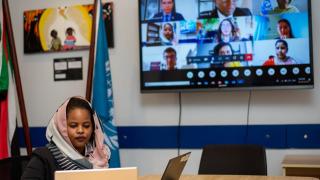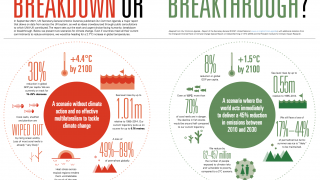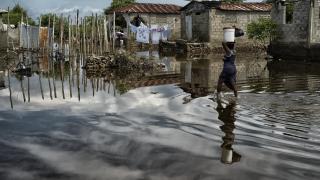
I come from the Maldives, an archipelagic country that is barely two meters above sea-level at its highest point. Year after year, our policymakers and diplomats exhaust themselves making appeals to the conscience of the international community, asking them to finally act against climate change, and rescue us from a watery grave.
We have watched our peers from small island developing states make similar appeals and witnessed their growing frustration at the glacial pace of climate action. At the same time, the latest report by the Intergovernmental Panel on Climate Change has vindicated what we have been saying for decades. Prolonged hurricanes, wildfires, drought, unpredictable and frequent weather events, all show that climate change is not a distant threat but a crisis on our doorsteps.
I did not choose ‘hope’ as the theme of my Presidency of the General Assembly because I am naïve about the gravity of the issues confronting us. Nor am I indifferent to the anger and concern of the many climate heroes who justifiably continue to ring alarm bells, pointing to the scientific data and the consequences of our inaction.
I chose hope because that is what will rescue us from complacency and cynicism. Hope is what we need to act.
Let us consider a key lesson from the ordeal of Covid-19. At the beginning of the pandemic, the entire world was in a state of panic. Hospitals were flooded. Doctors and nurses were overworked, exhausted and often on the verge of collapse. Entire economies were brought to a standstill. No viable vaccines were in sight, and health authorities warned there may not be any for years to come.
We could have resigned ourselves to fate and let the pandemic take its course, leaving a trail of human misery, death, and economic destruction in its wake.
Instead, we chose hope. We trusted in science and acted on the conviction that if we harnessed our collective ingenuity and resources, we could solve the challenge of the pandemic.
That attitude gave us solutions. Within two years, we have developed and begun the rollout of several viable vaccines. Countries have begun to beat back the virus. There is light at the end of the tunnel.
Yes, serious issues remain in terms of vaccine-accessibility and distribution – and I intend to address this at the General Assembly early in the New Year – but the point remains that hope, and action built on hope, has delivered solutions. Humanity demonstrated that it has the ingenuity and tools to quickly overcome one of the greatest challenges it has faced in the last century.
Climate change should be no different.
Sure, we can point to the doomsday reports and the many, many signs of alarm. These are not meritless, and we would be foolhardy to ignore them. But we should never use data to signal it is time to throw in the towel.
I firmly believe that if we act in that same spirit of hope as we did for COVID, with the same sense of urgency, we can successfully roll back the threat of climate change.
And unlike the pandemic, we have had decades to prepare, to deliberate, to argue, and to innovate. As a result, we know that we have the capacity and resources to implement the solutions we need.
Consider the commitment by wealthy countries to provide $100 billion in climate finance annually from 2020. As of 2019, climate financing from developed countries to developing countries stood at $79.6 billion annually. Yes, they fell short of reaching the $100 billion target, but they are moving ever closer. Moreover, the issue is not lack of money but how it is prioritized, meaning the goal is in sight and achievable.
Military expenditure is one area of spending that many believe could be redirected to climate finance. The same can be said for any number of sectors, industries or luxuries.
The end argument is the same: as a planet, we have more than enough wealth to address climate finance. But up to this point we simply haven’t been willing – politically, economically or personally – to take the steps needed, to fundamentally change how we live and exist on this planet. We have the power to change this.
The same argument applies to renewable energy and phasing out fossil fuels. We have the technologies available to completely power the planet on renewable energy. We just need to make the political and resource commitments required to get past the threshold.
In fact, the International Renewable Energy Agency (IRENA) reports that we have the potential to make two thirds of our energy output based on renewable sources by 2050, which would get us on track to meeting our net-zero targets.
Not only are solar and onshore wind sources energy efficient and available – they are cheap. IRENA’s Renewable Power Generation Costs in 2017 report found that solar and onshore wind are now the cheapest energy sources available. Meanwhile, estimates by Stanford University and others have put the cost of transitioning to renewable energy at $6.8 trillion per year; a third of the annual $17.7 trillion price tag for our business-as-usual energy system.
Nor does the argument for renewables end with the cost. By backing green technologies and sectors, we can create up to 18 million new jobs by 2030 according to the International Labour Organization.
In the long run, by investing in our collective ability to reduce greenhouse gas emissions and avert climate catastrophe, the world stands to gain a net economic benefit of between $127 trillion and $616 trillion by 2100, according to a major study by the Beijing Institute of Technology with other organisations in China, Sweden and the US.
I do not recite these facts and statistics with a misguided sense of optimism that merely listing them will convince policymakers to act. I am only too aware of the decades of inaction and shortsighted decisions that have failed to address - and exacerbated - the climate crisis.
I am listing these figures because focusing on what is still possible will give us hope. And hope is what will give us the will to act.
Action begets hope. It is a cycle that will result in positive momentum and a complete change in mindset, which is what this world needs.
Frankly, the world has had enough of doom and gloom. Chastising people for their shortcomings is not what rescued us from the worst of the pandemic, or the many global challenges before that. While it may make for entertaining news headlines, such approaches will not deliver us from the climate crisis.Hope and solutions-based approaches will. We must focus on what is possible, what is achievable, and come together to apply the many innovative tools at our disposal.
Now is the time for the world to act in the spirit of multilateralism. As the most representative body on earth, the United Nations must play a pivotal role in this task.
As President of the General Assembly, I will convene a High-Level Climate event in the lead up to COP26 in Glasgow, where I will reiterate the messages I have outlined above, emphasizing the power of hope in meeting our climate goals.
My message is simply this: we have the capacity to deliver on climate. We know the science, we have the resources, and the blueprints for what we must do are right in front of us. Let us have the courage to take the first step and embrace hope. And let us use the momentum from that hope and work towards meeting our climate targets with renewed conviction.
His Excellency Mr. Abdulla Shahid is President of the 76th Session of the UN General Assembly and Minister for Foreign Affairs of the Maldives. He was a negotiator at the Earth Summit in Rio de Janeiro in 1992, and has advocated for a rights-based approach to climate change at the Human Rights Council.
Photo: His Excellency Mr. Abdulla Shahid attends the Expo 2020 in Dubai. Credit: UN_PGA




